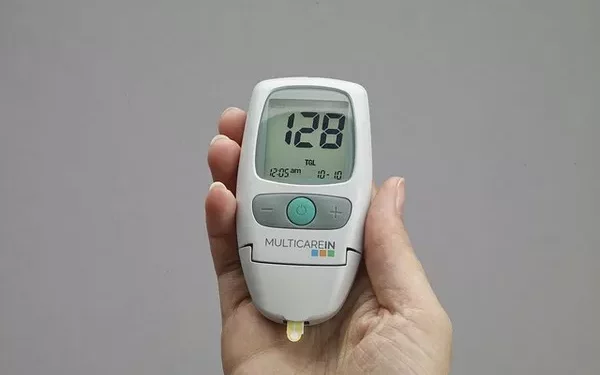Blood glucose levels are crucial in understanding how the body processes sugar and maintains energy. For individuals with or without diabetes, monitoring blood glucose levels can provide essential insights into overall health. One common test used for evaluating glucose is the random blood glucose (RBG) test. This test helps determine how much sugar (glucose) is circulating in the blood at any given time without needing fasting beforehand.
In this article, we will dive into what constitutes normal random blood glucose levels, why it matters, and how it can help in managing diabetes or assessing metabolic health. We will also explore the factors that affect random blood glucose levels, the importance of consistent monitoring, and lifestyle changes that can contribute to better glucose control.
Understanding Blood Glucose
Blood glucose, also known as blood sugar, is the primary type of sugar found in the bloodstream. It is the body’s main source of energy and is derived from the foods we eat. After eating, carbohydrates are broken down into glucose, which is then absorbed into the bloodstream. The body uses this glucose for energy, but it must be kept within a normal range to maintain proper health.
The regulation of blood glucose involves two key hormones:
Insulin: Secreted by the pancreas, insulin helps cells absorb glucose from the blood to be used for energy or stored for future use.
Glucagon: This hormone signals the liver to release stored glucose when blood sugar levels drop too low.
For individuals with diabetes or prediabetes, these processes are disrupted, leading to difficulties in maintaining normal glucose levels.
What Is Random Blood Glucose?
Random blood glucose (RBG) refers to the measurement of blood sugar levels at any point during the day, regardless of when the last meal was consumed. Unlike fasting blood glucose tests, which require not eating for at least 8 hours before testing, random blood glucose does not depend on fasting status. This makes it a convenient option for screening, especially when a quick result is needed or when symptoms suggest high blood sugar levels.
Normal Range for Random Blood Glucose
The normal range for random blood glucose can vary slightly depending on the laboratory standards or guidelines. However, generally accepted normal values are:
For non-diabetic individuals: 70-140 mg/dL (3.9-7.8 mmol/L).
For individuals with diabetes: Levels can vary more widely depending on the type of diabetes and the effectiveness of blood sugar management. A reading above 200 mg/dL (11.1 mmol/L) suggests hyperglycemia and potential diabetes.
To clarify, a reading of random blood glucose within the 140-200 mg/dL range could indicate the need for further testing, particularly if symptoms of diabetes (such as excessive thirst, frequent urination, or fatigue) are present.
Why Monitoring Random Blood Glucose Is Important
Monitoring blood glucose levels provides valuable information for diagnosing diabetes, assessing how well someone’s diabetes is controlled, and evaluating overall metabolic health. Let’s break down the importance for different groups:
For Non-Diabetic Individuals
In healthy individuals without diabetes, random blood glucose levels fluctuate throughout the day based on factors such as food intake, physical activity, and stress levels. Monitoring random blood glucose levels can help detect potential issues early, such as prediabetes, where blood glucose levels are elevated but not yet in the diabetic range.
For Individuals with Prediabetes
Prediabetes is a condition where blood sugar levels are higher than normal but not high enough to be classified as diabetes. It often precedes type 2 diabetes and is considered a warning sign. Regular monitoring of blood glucose levels, including random readings, can provide insights into whether blood sugar levels are rising over time and if lifestyle changes are needed.
For Individuals with Diabetes
For those diagnosed with diabetes (type 1 or type 2), monitoring random blood glucose levels is a crucial component of managing the disease. This helps in:
- Adjusting medications, including insulin dosages.
- Understanding how different foods affect blood sugar.
- Identifying periods of hyperglycemia (high blood sugar) or hypoglycemia (low blood sugar).
- Preventing complications associated with poorly controlled blood sugar, such as heart disease, nerve damage, and kidney failure.
Factors That Affect Random Blood Glucose Levels
Random blood glucose levels are subject to various factors, some of which are external and others related to the body’s internal metabolic processes. Below are some of the most common influences:
1. Diet and Meal Timing
What and when you eat has a direct impact on blood glucose levels. Carbohydrates, particularly simple sugars and refined grains, cause a quick rise in blood sugar, while proteins and fats have a slower effect. Large meals or high-carbohydrate foods tend to cause higher random blood glucose levels.
2. Physical Activity
Exercise helps lower blood sugar by increasing insulin sensitivity and enabling muscle cells to absorb glucose more effectively. Regular physical activity typically leads to better blood sugar control. However, strenuous exercise can sometimes result in temporary spikes or drops in blood glucose.
3. Stress
Both physical and emotional stress can affect blood glucose levels. When you’re stressed, your body releases hormones like cortisol and adrenaline, which increase blood sugar to provide energy for a fight-or-flight response. Chronic stress can lead to consistently elevated glucose levels.
4. Illness or Infection
During periods of illness, such as an infection, the body releases stress hormones to help fight the disease. Unfortunately, these hormones also increase blood sugar levels, which is why people with diabetes often see higher blood glucose during sickness.
5. Medications
Certain medications, such as corticosteroids, beta-blockers, and some diuretics, can raise blood sugar levels. If you’re taking these medications, it’s important to regularly monitor your blood glucose to ensure it remains within a safe range.
6. Hormonal Changes
Hormonal fluctuations, especially in women, can cause blood glucose levels to vary. For example, blood sugar levels may increase during menstruation, pregnancy, or menopause due to changing hormone levels. In men, testosterone levels can also influence glucose metabolism.
7. Sleep Patterns
Poor sleep or sleep deprivation can lead to higher blood glucose levels. Sleep is essential for maintaining normal insulin sensitivity, and lack of sleep can disrupt glucose regulation. Those who suffer from sleep disorders, such as sleep apnea, are at a higher risk of developing insulin resistance.
How to Maintain Normal Random Blood Glucose Levels
For those looking to maintain healthy random blood glucose levels, whether diabetic or non-diabetic, the following strategies can be helpful:
1. Follow a Balanced Diet
A diet rich in whole foods, such as vegetables, fruits, whole grains, lean proteins, and healthy fats, is essential for blood glucose control. Avoid excessive consumption of sugary snacks, refined carbohydrates, and processed foods. Some dietary tips include:
Choose low glycemic index (GI) foods: These cause slower and smaller rises in blood sugar levels.
Portion control: Overeating can lead to large blood sugar spikes, so be mindful of portion sizes.
Regular meal timing: Eating at consistent times helps regulate blood glucose.
2. Engage in Regular Physical Activity
Exercise plays a crucial role in maintaining healthy blood glucose levels. Aim for at least 150 minutes of moderate aerobic exercise per week, along with strength training exercises. Physical activity helps improve insulin sensitivity, making it easier for cells to use glucose for energy.
3. Manage Stress
Since stress can raise blood glucose levels, finding effective ways to manage it is important. Consider stress-reducing activities such as yoga, meditation, deep breathing exercises, or spending time in nature.
4. Monitor Blood Glucose Regularly
For individuals with diabetes, regular blood glucose monitoring is essential. Check your blood sugar at different times of the day, including after meals, to understand how food, activity, and other factors affect your glucose levels.
5. Medication and Insulin Adjustments
If you’re on diabetes medication or insulin therapy, it’s crucial to follow your healthcare provider’s advice and adjust dosages as needed. Proper medication management can help prevent high or low blood sugar episodes.
6. Get Regular Checkups
For individuals with or at risk of diabetes, regular checkups with a healthcare provider are essential. They can track your progress, monitor for complications, and adjust your treatment plan as needed.
When to Seek Medical Attention
While random blood glucose monitoring is a useful tool, consistently high readings or symptoms of high or low blood sugar should prompt a visit to your healthcare provider. Some signs that you may need medical attention include:
Frequent high blood sugar readings: If your random blood glucose is consistently over 200 mg/dL, it may be a sign that your diabetes management plan needs adjustment.
Symptoms of hyperglycemia: These include excessive thirst, frequent urination, fatigue, and blurred vision.
Symptoms of hypoglycemia: Signs of low blood sugar include shakiness, sweating, confusion, dizziness, and weakness.
See also: What Is The Guidelines For Blood Sugar
Conclusion
Random blood glucose is an essential measure of how the body regulates sugar at any given moment. For non-diabetic individuals, maintaining levels between 70-140 mg/dL is considered normal. For those with diabetes, regular monitoring of random blood glucose levels helps manage the disease and prevent complications.
Understanding the factors that influence blood glucose levels, such as diet, physical activity, stress, and medications, allows individuals to take control of their health. Whether you’re managing diabetes or working to maintain metabolic health, regular monitoring and lifestyle adjustments are crucial to keeping blood sugar within a healthy range.
By following a balanced diet, engaging in physical activity, managing stress, and staying on top of medical care, you can work towards maintaining normal random blood glucose levels and improving overall well-being.
Related topics:
What is the Fastest Way to Fix Prediabetes?

























